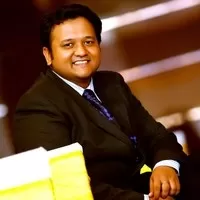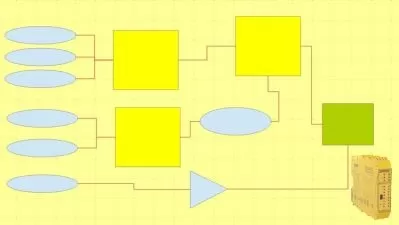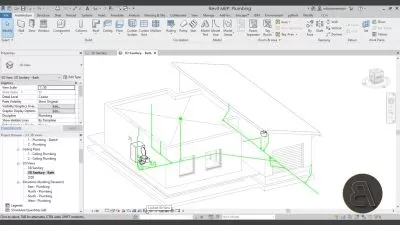Practical CMOS Op Amp Circuit Design and Feedback Analysis
Dr G S Javed
1:25:39
Description
Think, Understand, Design and Analyze
What You'll Learn?
- Designing an Op Amp for specification provided
- Understanding how to distribute the gain and bandwidth requirement
- Clarity on the stability of the design
- Understand the practical examples of Opamp Design
Who is this for?
What You Need to Know?
More details
DescriptionCourse Overview
This course introduces students to the design, development, and analysis of low-power CMOS operational amplifiers (op amps). Op amps are one of the most important building blocks in analog and mixed-signal integrated circuits, and they are used in a wide variety of applications, including amplifiers, filters, comparators, and oscillators.
In this course, students will learn the fundamental principles of op amp design, such as differential amplifiers, common-mode feedback, and frequency compensation. They will also learn about the specific challenges of designing low-power op amps, such as reducing power consumption and improving noise performance.
Course Objectives
Upon completion of this course, students will be able to:
Understand the fundamental principles of op amp design
Design and analyze low-power CMOS op amps
Use circuit simulation tools to model and analyze op amps
Upon completion of this course, you will be able to design and implement CMOS low-power op-amp circuits for a wide range of applications. You will also be able to analyze the performance of CMOS op-amp circuits and use feedback to improve their performance.
Conclusion
This course is an ideal introduction to the design, development, and analysis of CMOS low-power op-amps. The course is well-suited for students and engineers who want to learn about op-amps and how to design them for low-power applications.
Additional Resources
The following resources may be helpful for students taking this course:
Textbooks:
CMOS Analog Circuit Design by Allen and Holberg
Design of High-Performance CMOS Operational Amplifiers by Razavi
Online Resources:
Analog Devices Op Amp Design Guide
Texas Instruments Op Amp Design Guide
Who this course is for:
- Beginner Analog Design Engineers
- Recent College Grads
- Practicing design engineers
Course Overview
This course introduces students to the design, development, and analysis of low-power CMOS operational amplifiers (op amps). Op amps are one of the most important building blocks in analog and mixed-signal integrated circuits, and they are used in a wide variety of applications, including amplifiers, filters, comparators, and oscillators.
In this course, students will learn the fundamental principles of op amp design, such as differential amplifiers, common-mode feedback, and frequency compensation. They will also learn about the specific challenges of designing low-power op amps, such as reducing power consumption and improving noise performance.
Course Objectives
Upon completion of this course, students will be able to:
Understand the fundamental principles of op amp design
Design and analyze low-power CMOS op amps
Use circuit simulation tools to model and analyze op amps
Upon completion of this course, you will be able to design and implement CMOS low-power op-amp circuits for a wide range of applications. You will also be able to analyze the performance of CMOS op-amp circuits and use feedback to improve their performance.
Conclusion
This course is an ideal introduction to the design, development, and analysis of CMOS low-power op-amps. The course is well-suited for students and engineers who want to learn about op-amps and how to design them for low-power applications.
Additional Resources
The following resources may be helpful for students taking this course:
Textbooks:
CMOS Analog Circuit Design by Allen and Holberg
Design of High-Performance CMOS Operational Amplifiers by Razavi
Online Resources:
Analog Devices Op Amp Design Guide
Texas Instruments Op Amp Design Guide
Who this course is for:
- Beginner Analog Design Engineers
- Recent College Grads
- Practicing design engineers
User Reviews
Rating
Dr G S Javed
Instructor's Courses
Udemy
View courses Udemy- language english
- Training sessions 21
- duration 1:25:39
- Release Date 2023/11/21










